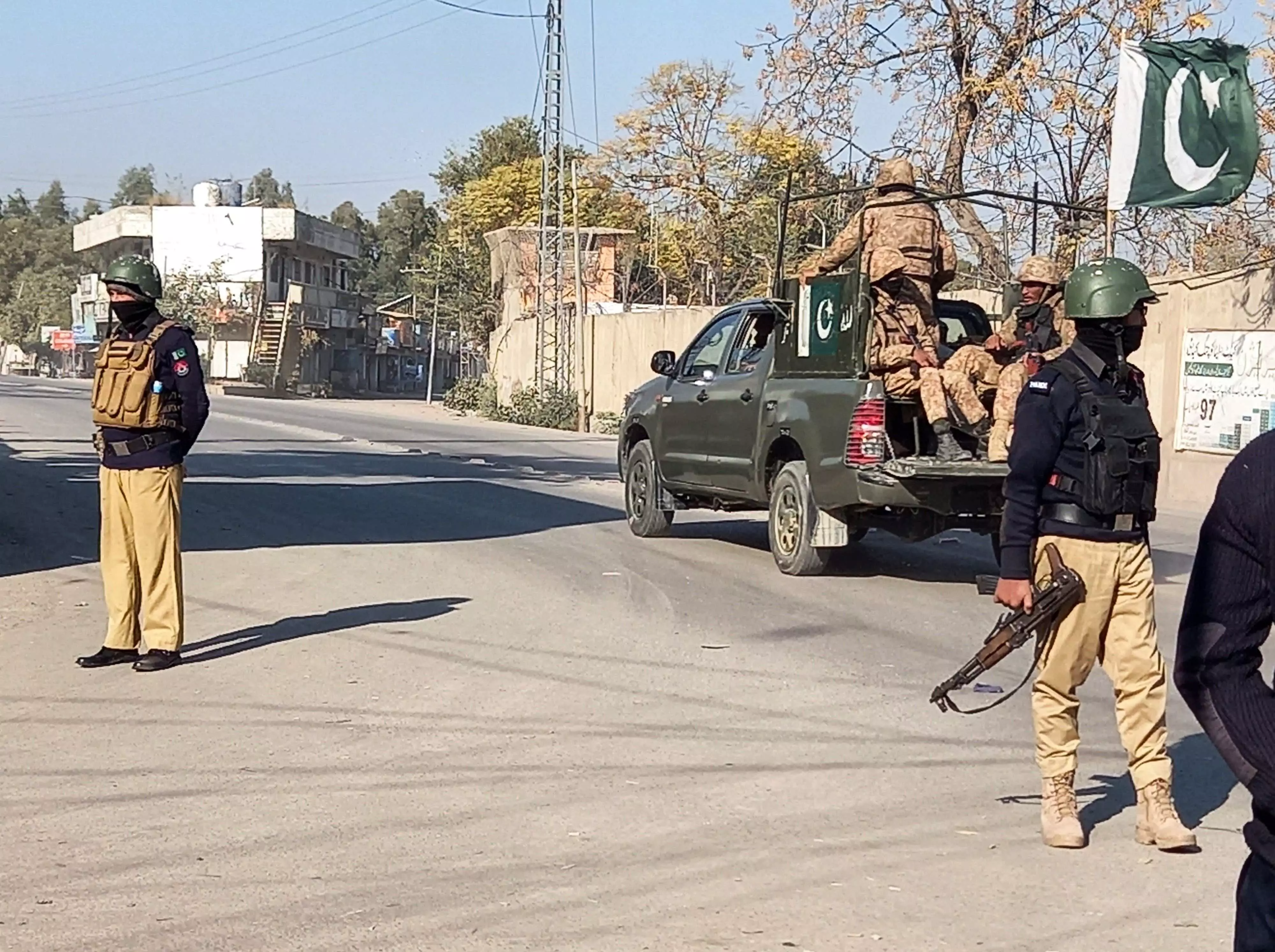Sitting ducks!
The January 3 lethal attack on the officers of the Inter-Services Intelligence has once again exposed the fragility of Pakistan’s security apparatus

The Pakistani military and intelligence establishment were dealt a severe blow when two officers of the Inter-Services Intelligence (ISI) were killed on January 3, rather cheaply, near a roadside restaurant around Khanewal. While so far nobody has claimed the responsibility for the killings, it is strongly suspected that Pakistani Taliban were complicit in this assault, as these slain police officers were known for arresting members of the Pakistani Taliban and other militant groups. One of the officers killed was the director of the provincial counter-terrorism wing which always played a role in apprehending members of the Tehreek-e-Taliban Pakistan (TTP). The officers killed were Naveed Sadiq Sial and Nasir Abbas.
Meanwhile, Pakistan’s Defence Minister Khawaja Muhammad Asif recently disclosed that a fresh wave of terrorist attacks in Pakistan was emanating from TTP hiding in Afghanistan. In this connection, he urged the Taliban leadership in Afghanistan to prevent the misuse of Afghan soil for perpetrating attacks in Pakistan. However, the Taliban’s chief spokesman, Zabiullah Mujahid, said that Afghanistan wanted good relations with all its neighbouring countries, including Pakistan. He also asked Islamabad to refrain from making such provocative statements. This shows that Pakistan-Afghanistan relations continue to be at a low.
The killings under reference show a complete breakdown of the law-and-order situation in Pakistan, and when the key ISI officers are fatal targets, then it means that the scene is really grim and there is a complete penetration into the well-armoured intelligence machinery of Pakistan, which is run by the all-powerful military. It is also pertinent to mention here that deceased officer Sial was considered to be the most decorated ISI officer for his anti-terrorism activities in Multan. Sial was specifically recognised for his role in an operation leading to the extermination of a top-ranking leader of the IS in Faisalabad, as also in other connected anti-terrorism operations. These cold-blooded and pre-meditated killings have brought in a high sense of demoralisation among the “invincible” ISI rank and file.
In the meantime, according to statistics released by an Islamabad-based independent think tank, Pakistan Institute for Conflict and Security Studies (PICSS), the number of militant attacks has increased by 44 per cent in December compared to November 2022. In December, the militants carried out 49 attacks, killing 56, including 32 members of security forces and 17 civilians. The report also added that last December saw the highest number of militant attacks in a single month in 2022. The PICSS figures also show that the year 2022 denotes a 28 per cent spike in terror attacks compared to 2021.
In a separate security-related development, the state institutions are perceived to have committed a mistake by deciding to initiate peace talks with the TTP. The talks were a nonstarter. They allowed the TTP to regain their lost political and operational momentum. Though the idea came from the Afghan Taliban, Pakistan’s state institutions were more than willing to negotiate with the terrorist group they had always described as a defeated entity. The strategic and political reasoning behind the decision seems ambiguous. These thoughts are well articulated by noted security analyst Amir Rana. He has called upon the new military leadership to re-strategize Pakistan’s counterterrorism policy as it is the responsibility of the government and the security institutions to decide how these can be achieved. Amir Rana further recommends that there should be an open discussion on the country’s Afghan policy within and outside the parliament, including on terrorism in Pakistan. Pakistan’s support to the first Taliban regime was never a secret. But the Taliban collaborated with its enemies including the Pakistani Taliban, Al Qaeda, and other terrorist groups. The Taliban’s current regime in Afghanistan is not much different. Pakistan had high expectations that the Taliban would not only detach themselves from groups like the TTP but also help dismantle these organisations and reintegrate or rehabilitate their cadres. Such Pakistani calculations have gone wide off the mark, and this is what happens when there is an amateurish approach to solving critical security problems.
Security thinkers further feel that bilateral talks between the two states (Afghanistan and Pakistan) should be held on a track-one basis to avoid any other double or half-tracks. Engaging jirgas and religious clerics for confidence-building measures has proved counterproductive so far, and many of the members of such delegations have proved spoilers rather than helping the state arrive at any consensus. The Taliban regime, on its part, should rethink what kind of policies towards its neighbours would be productive — providing safe havens to the terrorists, absorbing them into the Taliban fold, or enhancing bilateral and multilateral counterterrorism cooperation. This line is also consistently maintained by a group of strategic thinkers in Pakistan.
Finally, whether Pakistan ISI is losing its credibility in terms of delivering security-related tasks or its officers are fatally succumbing to the terrorists’ bullets, one thing that appears certain is that all is not well with Pakistan’s security and intelligence establishment. It would do well to focus to mend its internal inherent weaknesses than launching offensive operations across the borders of India or Afghanistan. Let its security apparatus be well-oiled first in controlling domestic and cross-border terror, failing which, it will be fraught with the propensity of galloping back to the FATF list once again!
The writer is a retired IPS officer, a security analyst and a former National Security Advisor to the PM of Mauritius. Views expressed are personal



